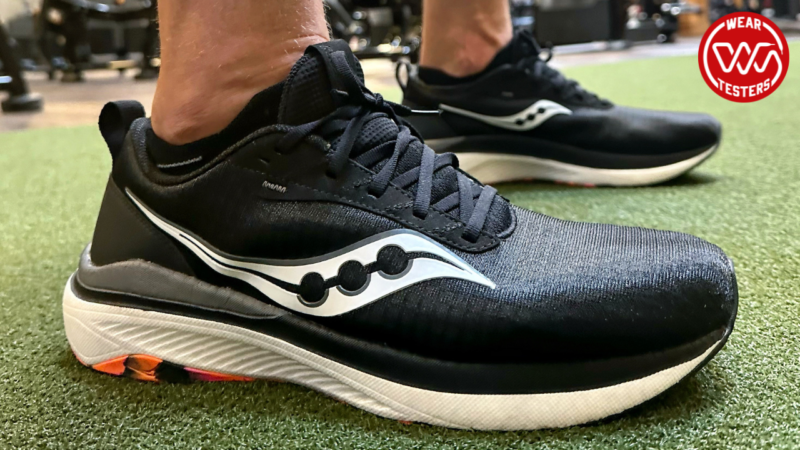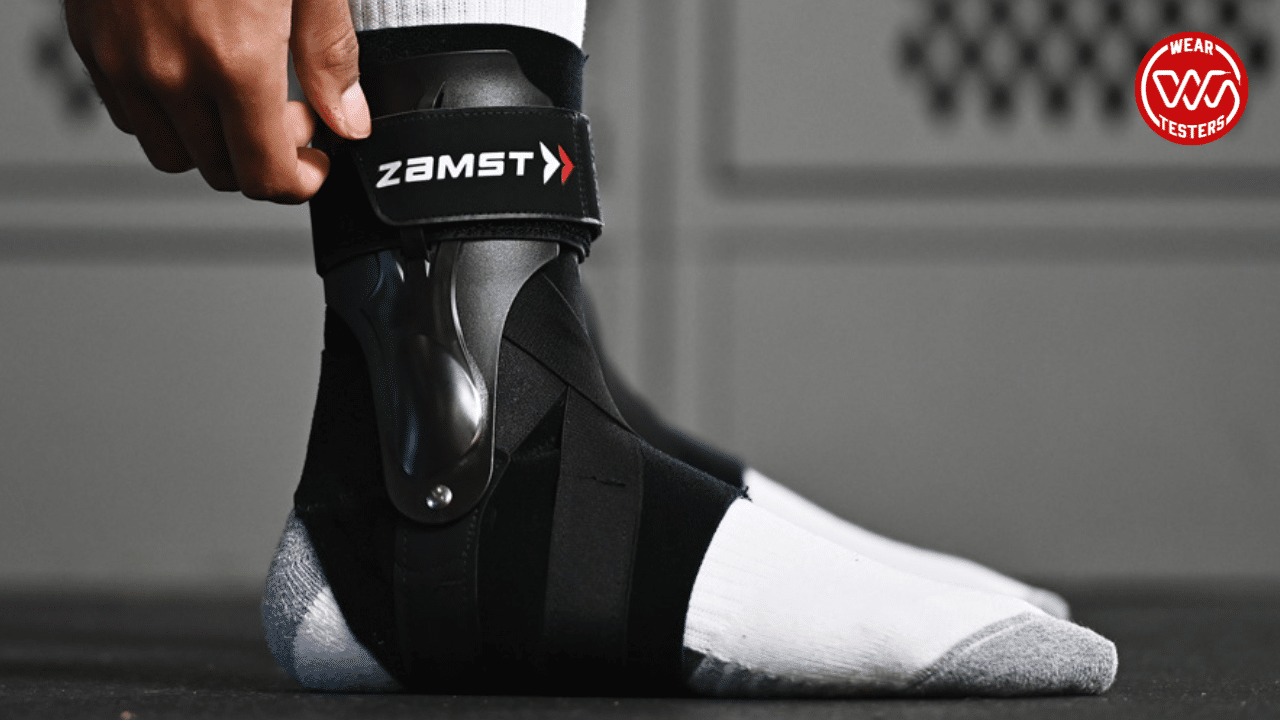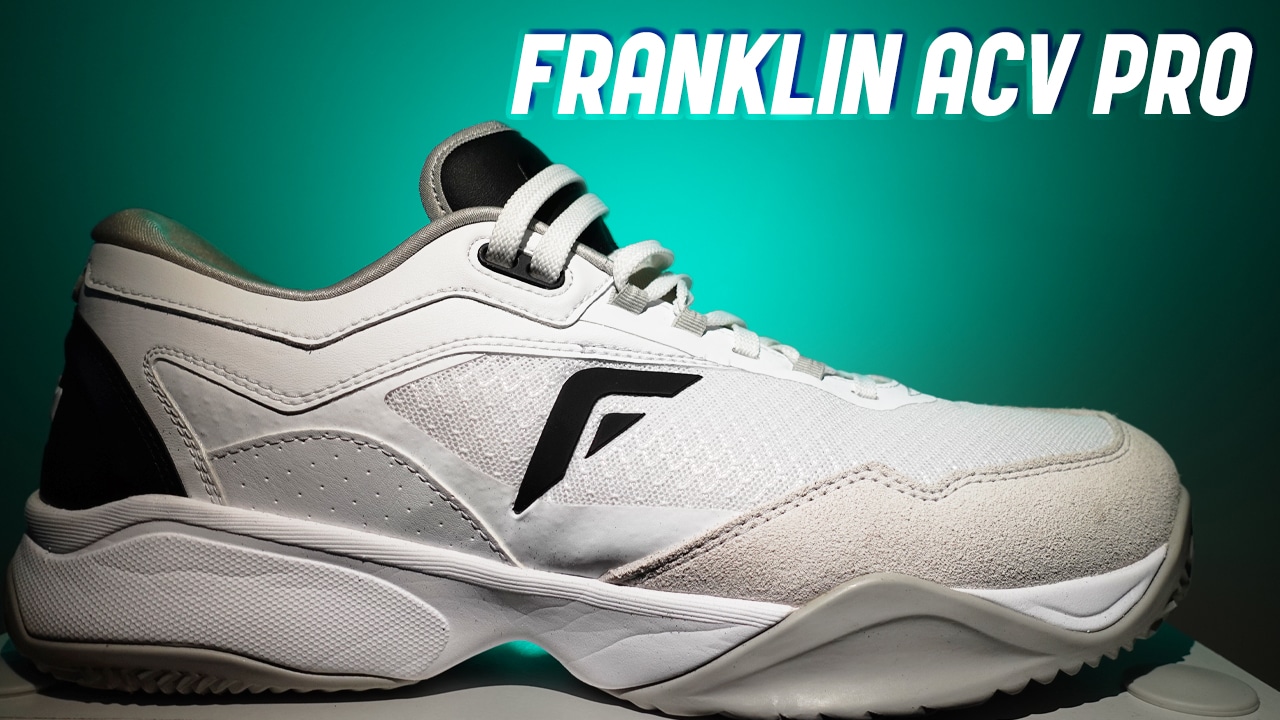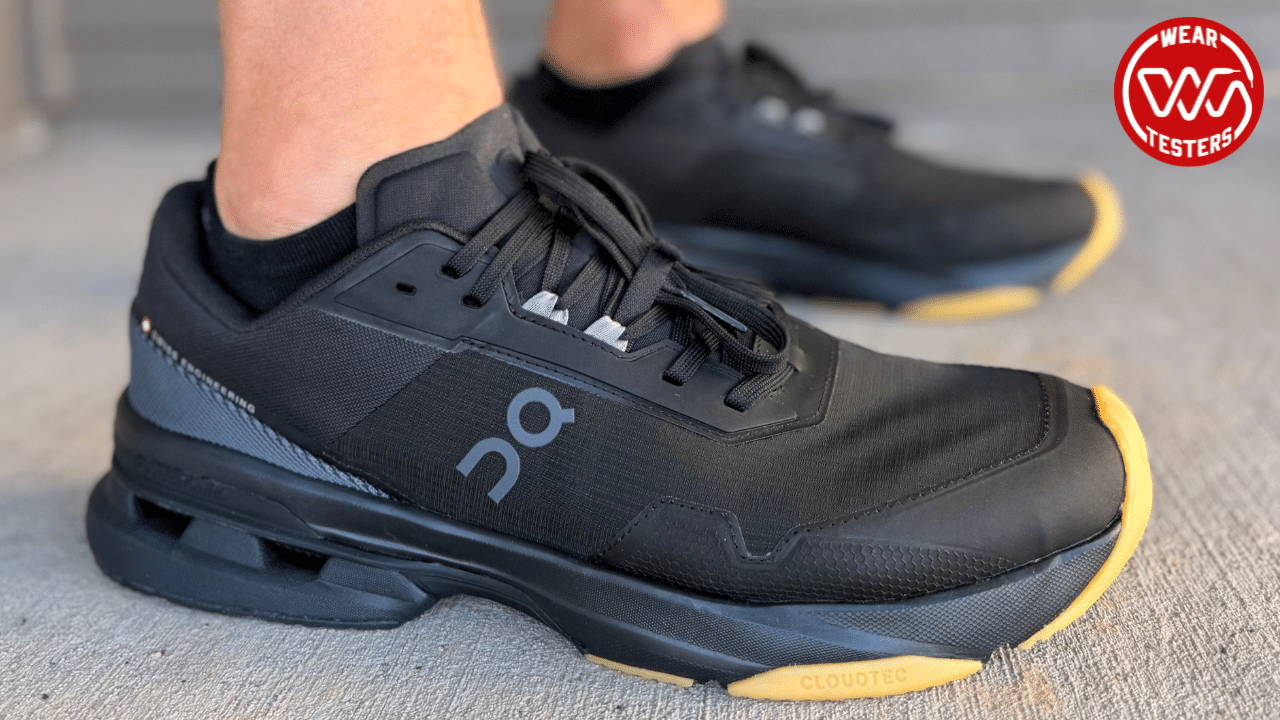There’s never been a better time to look for your perfect training shoe – from the Reebok Nano X3 to the Under Armour Project Rock 5 to the RAD One, there’s a training shoe for everyone. Now the Saucony Freedom Crossport offers something different from an elite running brand that’s not well-known in the cross training space.
But chances are that if someone mentioned Saucony, even the most ardent gym rat might raise an eyebrow and ask if you’re not speaking about running (where the company is undoubtedly in an elite class).
So when Saucony reached out about their new Saucony Freedom Crossport shoe, we said “Huh, that’s interesting”, remembered how much we’ve been blown away by the last couple of years of runners and immediately couldn’t wait to try them on.
Please note that while Saucony did provide these shoes for review, they have no involvement in this review, didn’t receive an advance look at it, and have not attempted to influence this review.
Update: The Suacony Freedom Crosssport made it onto our list of the best shoes for jumping.
Saucony Freedom Crossport
Release Date: May 2023
Price: $150
Weight: Men’s 8.6oz, Women’s 7.4oz
Drop: 4mm
Sizing: True to size
- Rundown: The Saucony Freedom Crossport is going to appeal to Saucony running shoe fans as it’ll provide a similar feel for the gym.
How do the Authors Train?
Arune Singh (age 41, 5’11”, 205lbs): Trains daily with functional fitness programming provided by Deadboys Fitness, founded by Colby “Seth Rollins” Lopez and Josh Gallegos. He also runs five times a week, averaging 15 miles per week, and will be participating in multiple 5K races this year. He also has a medical history of Sleep Apnea and Myasthenia Gravis, meaning Arune’s focus is on lean muscle mass.
Drew Whitcomb (age 41, 6’6″ 195lbs): Trains daily with a focus on running, strength training, and mobility. He writes the majority of our running shoe reviews and runs a lot of miles both due to testing needs and his growing affinity for long-distance races. He recently completed the London Marathon. More marathons, half-marathons, 10k, and 5k races are in his future. His strength training and mobility regimen center around maintaining flexibility and lifting heavy to build power as a counterbalance to all the long-distance running he’s doing. His number one focus is staying injury free so he can keep up the sweet gig of reviewing shoes for a living.
What is the Saucony Freedom Crossport?
Saucony describes it as:
Start with the run. Stay for the workout.
The Saucony Freedom Crossport has just the right amount of performance capabilities. Designed to handle both on-road expeditions and HIIT sessions with ease, this shoe’s got stability written all over it. Here’s to a better workout.
The shoe has a 4 mm drop, weighs 8.6 oz in a men’s size 9 and it’s vegan, so no animal products here.
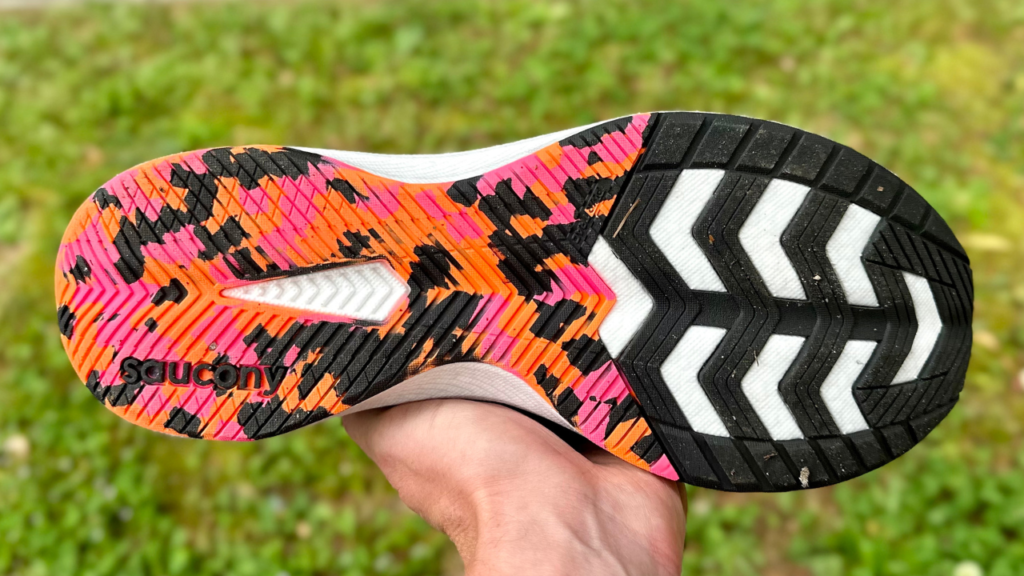
Pros
Cardio Beast
Arune: When someone tells you who they are, believe them, right?
Well, Saucony tells you from the beginning that you “Start with the run. Stay for the workout.” And that’s where the shoe excels.
This shoe is built for starting your workout with cardio – it’s an incredibly comfortable runner (I’ve done up to 3 miles in it), fits perfectly with a rower or exercise bike, and that PWRRUN PB (PEBA-based) midsole rewards you the harder you push.
While most training shoes treat the lifting as the true virtue and cardio as a necessary evil, the Saucony Freedom Crossport asks you to come at it from a different POV where cardio is your focus, but your fitness is incomplete without further training.
That’s still something I’m wrapping my head around because lifting has always come first, but I’m curious to hear what Drew says given that The Tallest Shoe Reviewer In The World puts in some ridiculous miles each week.
Drew: Now I’m wondering if I actually am the tallest shoe reviewer in the world…anyway, back to the matter at hand. The Saucony Freedom Crossport immediately dispenses with the idea of being a stable platform for lifting by using the pelletized PWRRUN PB, a staple in its high-end running shoes. PWRRUN PB is super bouncy, but, like most high-end foams used in running shoes, is a bit unstable. Bounce and squish are the priority.
And that’s great for cardio. This is immediately the best cross training shoe for running even though the amount of PWRRUN PB is much less than the best Saucony running shoes. It also excels at plyometrics, jump rope, lateral drills (though lace it tight because the upper is malleable if left loose), and any other quick movements with potentially hard landings. Depending on the philosophy of your HIIT or Metcon instructor, this could be the perfect shoe to handle the mileage and harsh impact forces.
Perfect for Plyo
Arune: Despite a tough initial adjustment period (see below), the Saucony Freedom Crossport really started to make sense to me when I put it through the paces with some intense plyometric training.
This shoe really wants to make me keep moving (sometimes for the worse, which we’ll discuss), so intense movements like mountain climbers, skater hops, and jumping air squats were a true joy compared to training shoes where it’s all about relative discomfort,
The toe box and curve really are especially perfect for burpees and I felt like I was confidently popping up in a way I haven’t felt in any other training shoe.
Drew: I agree with everything Arune mentioned. It’s helpful to think of the Saucony Freedom Crossport as a running shoe (the Saucony Freedom was a thing for five iterations) adapted to the workout world. Its DNA is mostly running with some HIIT-centric aspects thrown in. Its geometry, cushion, and weight still scream everyday running shoe.
Great Everyday Option
Arune: One of the great things about Saucony shoes is that they have incredibly sleek and timeless silhouettes – the Triumph, Ride, and Endorphin lines will look great ten years from now (even if midsole stacks are probably 80mm tall by that point).
This is a shoe I wore for my AM workouts and then kept wearing through business meetings all day long, runs to the grocery store, and then a short evening cardio session.
The Saucony Freedom Crossport looks like a million other shoes you’ve seen and that’s why it works – it blends in perfectly no matter what you’re doing. But it doesn’t look like so many of those training shoes that look like…training shoes and so if transitioning from workouts to everyday life is a priority, this is a pretty hard training shoe to beat in the aesthetics department.
Drew: Yes, the Saucony Freedom Crossport is a great athleisure shoe in addition to its helpfulness in a high-impact workout class. The versatile appeal will help Saucony sell more of these puppies because not everyone wants a shoe that’s hyperfocused on one use case.
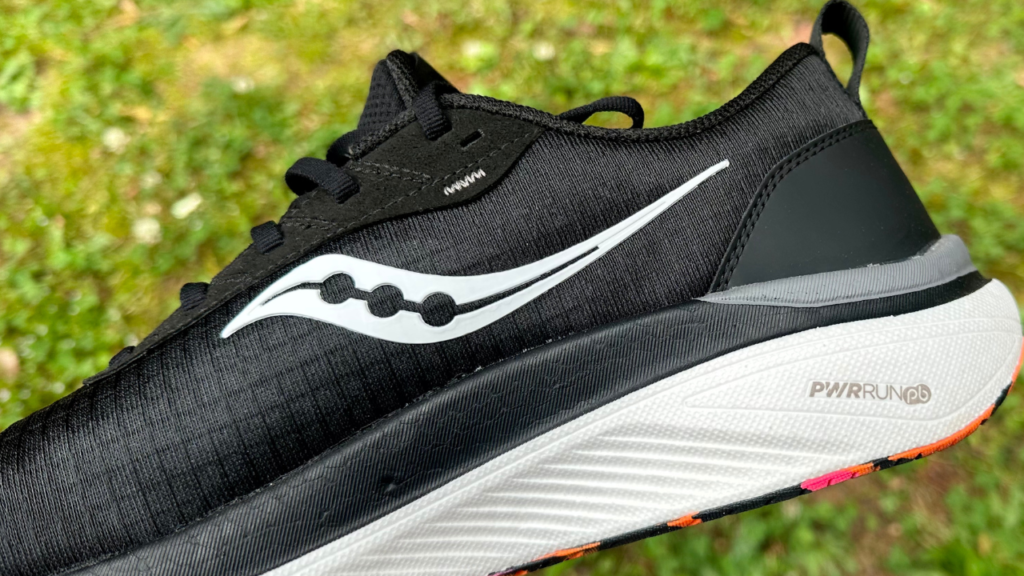
Cons
Bad First Impressions
Arune: Look, I’ll be real – I didn’t like this shoe at all for the first few workouts.
The shoe felt incredibly tight for my Hobbit feet, with the toe box being cramped and some intense pressure on the walls of my midfoot. That’s since improved as the upper stretched out with further workouts but I don’t know that this is going to be a good option for most wide footers.
And the foundation as a running shoe made my lifts feel incredibly unstable at first like I couldn’t ever really get a solid feel for the ground. I’ve figured out how to push down into the ground more, but I still find single-leg lifts (like REFSS or RDL variations) kinda perilous in these shoes.
As you’ve seen above, I worked through these initial first impressions but I don’t know that I would’ve had the same patience if I’d paid for these and there was any question about a return policy.
Drew: My first day wearing the Saucony Freedom Crossport included some heavy squats and on-leg bosu ball mobility work. The Crossport made both harder. Be prepared for an adjustment period as this is not the typical workout shoe being released by major brands these days.
No Olympic Lifts
Arune: There’s a lot that’s great about this shoe, but I cannot recommend Oly lifts like snatches, cleans, or heavy squats in this shoe.
My feet couldn’t ever really feel the ground and I can’t remember the last time my legs were shaking that much on the first rep.
And any time I had to get up on my toes, I felt like I might fall forward – the running shoe DNA here means the shoe wants to propel you forward but with these lifts I want to be moving up and down, not worrying if I face plant.
Drew: You’ll quickly learn what this shoe isn’t good at…lifting heavy weights and balance work. But once you know that, you can avoid those types of exercises when wearing the Crossport.
Is this for you?
Arune: We talked about this early on, but it really depends on your focus in the gym – are you there for cardio first and doing some lifting as an accessory, maybe even some HIIT classes? Then this is a really interesting choice for you.
If you’re a hardcore lifter or in something like Crossfit, I don’t know that this makes a whole lot of sense in a world with so many other dedicated options.
Drew: Do your workouts involve jumping and/or lots of active movements? The Saucony Freedom Crossport needs to be on your radar. If you prefer lifting heavy above all else, stay away. If you do a lot of lateral movements, the Crossport can handle that but the question will go back to what the rest of your workout schedule looks like.
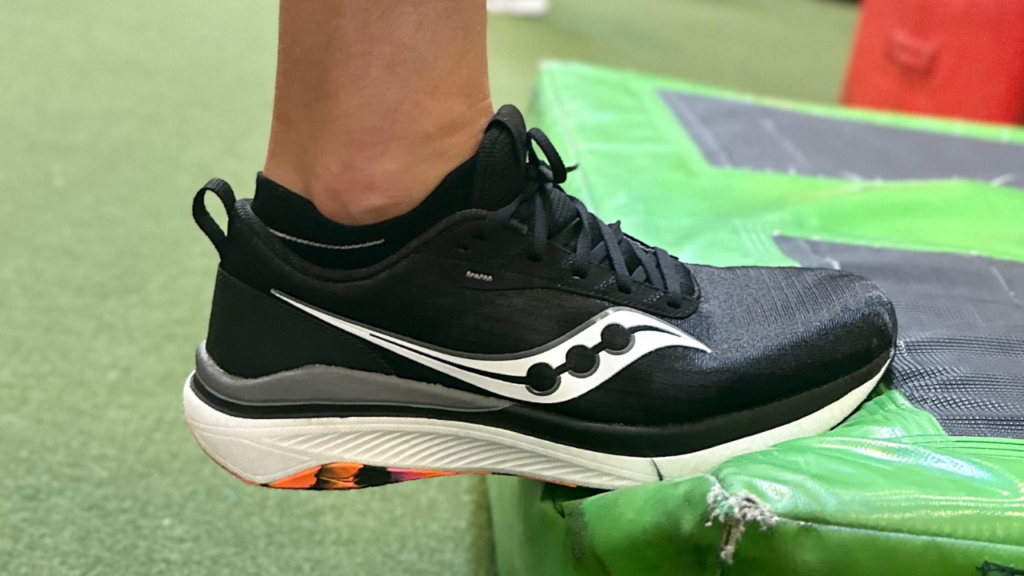
Saucony Freedom Crossport Summary
Arune: This is a shoe I plan to use every day for rowing, the air bike. and all my plyometrics sessions, so the Saucony Freedom Crossport has secured a place in my rotation. It fits really well with the kind of training I do at home.
However, for compound lifts and heavier sessions, I’ll be sticking with the Under Armour Project Rock 5 or even my old trusty Reebok Nano 4s.
This is a solid accessory to my training, but it doesn’t really replace any other shoe and it wouldn’t be my first choice for my one training shoe.
Drew: For me, the Saucony Freedom Crossport is going to appeal to Saucony running shoe fans as it’ll provide a similar feel for the gym. For myself, my gym routine really goes against the principle purpose of the Crossport so it won’t find a place in my rotation. And on days I do tackle plyometrics or heavy lateral movements, I’ll likely turn to a basketball shoe such as the Nike LeBron 20 or another shoe on our Best Shoes for Jumping list.

